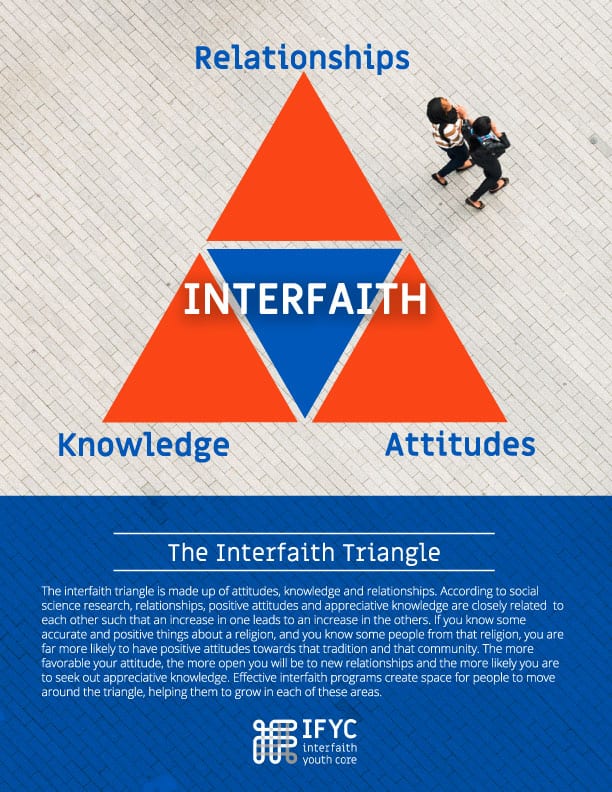Building Cultural and Religious Humility in your community and in your own life may seem a daunting task, but there are some simple ways to engage in the process.
1. Become culturally and religiously competent. This does not mean that we can become completely “competent” about a cultural or religious identity that is different from own, but it does mean that we can gain appreciative knowledge about another cultural or religious identity.
Appreciative Knowledge is gaining substantive knowledge about another tradition or identity AND cultivating positive thoughts, feelings, and attitudes towards that knowledge.
2. Don’t stop with cultural and religious competence. This means moving beyond the model of competence (a task-based model) and engaging in the model of humility (a process model). Practicing cultural and religious humility is a lifelong engagement with one’s own sense of self and how that self relates to others – how you orient around religion and other cultures. Cultivating appreciative knowledge and positive attitudes towards other is vital for developing humility, and you must begin by learning to share your own story, your own narrative identity.
Narrative Identity is comprised of the stories we tell ourselves about ourselves. Notice that learning to share your story with others in order to gain appreciative knowledge about others, and vice versa, does not require you to necessarily be “open minded” or give up your own identity. But it does require you to be BRAVE and to have the COURAGE to risk and be vulnerable with others. You must stand firmly within your own identity and tradition in order to offer hospitality to the other. As one professor says it, “You have to have a home in order to offer hospitality.”
3. Cultural and Religious Humility is not about being right, it’s about being in relationship. This means that we become less concerned with “right belief” and more concerned with “right action.” Why do we do what we do? Why do we serve? How do our beliefs shape our actions? How do others’ beliefs shape their actions? How can we come to value relationships instead of just trying to be right?
4. It’s time for Civic Interfaith Leaders. Cultural and Religious Humility is necessary and important because now is the time for leaders to rise up and empower others through authenticity and humility to engage in a world that is rich with diversity.

